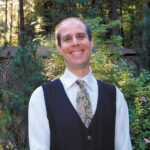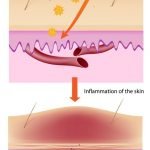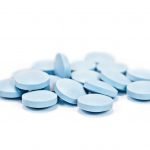Four Essentials of Cancer Care
Ken Weizer, ND
I work in a hospital setting, and have worked with cancer patients for eight years. The essence of what I know about treating people with cancer falls into four simple points.
Heart
Because cancer involves human beings on the edge of living and dying, I have found that it is essential to have a heart-based practice. By that I mean that the spiritual aspects of myself, my medicine and my patient are the essential foundation of what I do.
I do not necessarily talk about this in a clinical setting, although it certainly may happen. This is something I practice in my personal life, and hopefully it is reflected in how I practice in my medical life. I make a commitment each day to work on this; I commit two hours every day to meditation, and more time to reading books that open my mind and heart to hiking in the woods, to exercise and to using the language of non-violence. I daily make a commitment of my intention of service.
Cancer is more than a physical disease. In my opinion, that may be the least of it. Physical pain is generally well controlled by medications; mental and emotional suffering are not so easily medicated. For the patient, the cancer journey may be unending and inescapable. This is the burden many cancer patients bear, often silently. I feel that a heart-based practice allows me to aid patients in seeing another way to journey through cancer, by connecting with the reality of what is happening today and not the fear of what may happen tomorrow.
As a result, being in my own heart – having a sense of authenticity and tenderness in the present moment, and being able to connect with others in this way – is essential to my helping others.
Gastrointestinal Health
I feel we can improve the quality of life of our cancer patients by using our understanding and therapies to protect, preserve and rebuild gastrointestinal function during and after oncology treatments.
Radiation and chemotherapies kill cells, especially fast-growing cells like cancer cells, but also fast-growing cells such as those in the digestive tract. As NDs, we may prevent many of the side effects of standard oncology treatments by focusing on optimal nutrition and maintaining gut function with diet, supplements, exercise and stress reduction.
Develop a simple but comprehensive gut protocol and dietary plan with each patient that includes:
- Dietary guidelines: Develop clear, simple and easy-to-follow guidelines to aid in choosing foods that are tasty, fiber-rich and nutrient-dense.
- Smoothies: Help the patient develop a recipe that works for them using proteins, and plant and herbal nutrients.
- Exercise: Plan out a simple daily exercise program, even something as simple as using a pedometer and working up to 10,000 steps a day.
- Include hydrotherapy, massage and acupuncture when appropriate.
- Use minimal supplement interventions; primarily food based in powders or liquids. Prescribe appropriate herbs and homeopathic medicines as indicated.
This focus on gut function, which allows the patient to minimize oncology side effects and continue to eat, digest, eliminate and rebuild the body, is simple and basic. Nevertheless, this is the foundation of cure.
Listening
Patients want to be listened to and heard. We often forget this. Take the time and make the space for this to happen.
This is an opportunity to practice empathy when it is most needed – not to fix or advise, but to simply hear another human being’s feelings and story. For me, this is an essential aspect of cancer medicine. It may seem on the surface that this is a tedious and sad affair, listening to the stories of so many people in so much suffering. Yet, as a colleague put it, the careful empathetic listener “learns more about himself and life every time he talks with a patient.”
Underneath the patients’ stories is an incredible amount of feeling, vulnerability and humanness. Listening is a huge opportunity for us to connect as human beings. By listening, patients go from being alone and scared to having the knowledge that someone else cares enough to witness their lives. This experience can transform both doctor and patient.
Integration and Teamwork
Excellent patient care demands that we work within the oncology community. If we have a clear vision of what we are doing, we can establish meaningful and respectful relationships with our MD colleagues. This is what our patients want us to be doing.
I have found it essential to create a broad medical team to support the patient. This team may include those outside of an ND’s knowledge or comfort zone, such as physical therapists, support groups, cancer counselors, nutritionists, yoga teachers, hypnotherapists, social workers, cooks, transport facilities, hospice workers, comedians, hydrotherapists, chiropractors, massage therapists, acupuncturists and other cancer patients working as mentors. Do not try to go it alone.
These are the four things I find essential to my practice. I know this may sound simplistic, yet they are the foundation of my practice.

Ken Weizer, ND is a graduate of NCNM. He practices naturopathic medicine at the Providence Cancer Center in Portland, Oregon. He has been treating cancer patients for 8 years, and is a cancer survivor himself. Dr. Weizer teaches oncology at NCNM, and is a medical consultant for cancer patients internationally. He is a former filmmaker, and is now an avid hiker, swimmer, and meditator.









